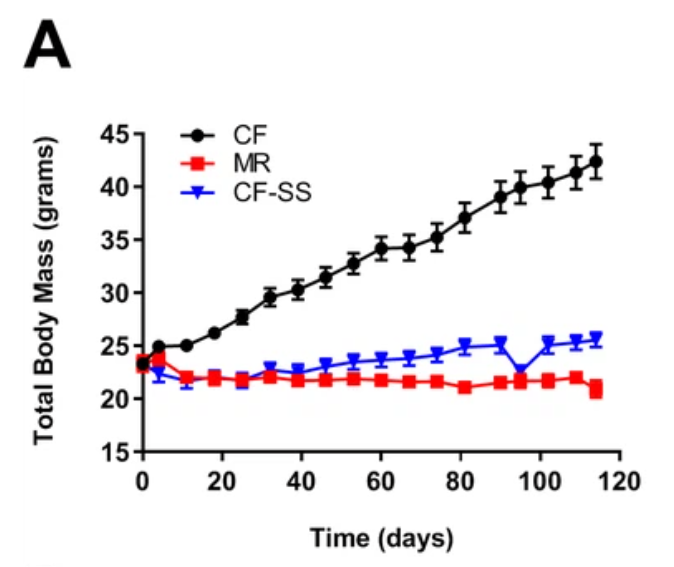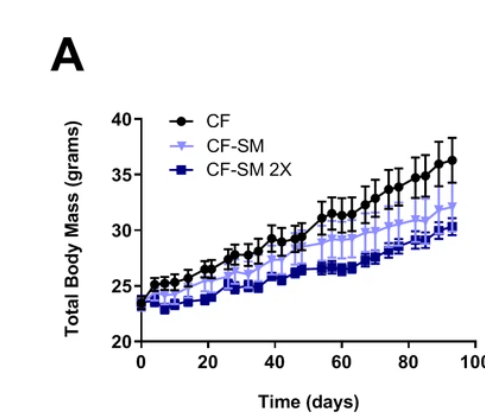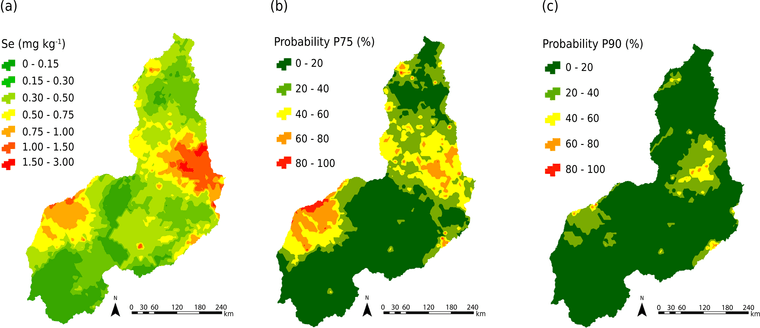Methionine/Cysteine restriction increases longetivity AND energy expenditure
-
@Mauritio - This is continues to be a great thread. In the link below, Dr. Peat explains what Broda Barnes discovered when he doubled his protein intake.
Dr Ray Peat - Blood Tests, Hormones, Protein Intake, & Ray's Carb List
-
@evan-hinkle said in Methionine/Cysteine restriction increases longetivity AND energy expenditure:
@Ecstatic_Hamster are you experimenting with it? If so how long, and any noticeable effects?
No not right now. I am moving more to lower protein and more plant options.
-
Instead of looking for hacks to mitigate the negative effects of methionine just stop eating it. Its like complaining you can't lose weight while stuffing yourself with fast food every day. This guy is catching on but not quite there yet:
@DavidPS said in Methionine/Cysteine restriction increases longetivity AND energy expenditure:
As you can see, the greatest source of methionine comes from foods of animal origin, especially chicken and fish. I am unwilling to adopt a diet based solely on plant foods and I use glycine to balance the methionine in my diet (after I have reduced it to an level that I still find appetizing).
Just follow Kempner's rice diet if you don't know where to begin. Eating only plants won't make you gay. Anyone experiencing insatiable hunger on high C, low P/F, might just not be eating enough. See posts from Kelj on old RPF. The more carbs you eat the higher you can push and restore metabolism.
I was at around 6k+ calories for a few weeks before it slowly dropped off. Eat to appetite even if that means 6k cal. When the food stops tasting good and you want to push the plate away, that's when your body has had enough. Something like 1400g carbs, 100g protein. Lots of table sugar, like in Kempner's where they added up to 500g of it. Even substituted some rice for mung bean starch since the protein in rice becomes unpalatable after eating a couple stacked plates of it.
Eating around 4000 now but I don't really track. Protein usually ends up under 70g. Mostly just fruit, tubers, leaves, rice, sugar. There was some vegan peating discussion on old RPF. Westside PUFAs had a thread, others I can't recall off the top of my head. Cirion had an interesting thread on self-experimenting with Protein/AA restriction.
-
@DavidPS That audio clip speaks directly to this thread.
In it, Peat mentions:
(i) Broda Barnes' finding that doubling dietary protein doubled his exogenous NDT requirement;
(ii) after the age of 30, aminio acids "of replacement" (especially methionine and cysteine) become inflammatory (at least in excess), and restricting them can be especially helpful for people that don't respond well to thyroid supplementation and/or have paradoxical inflammatory symptoms;
(iii) Peat recommends a 1:7 ratio of protein to carbohydrate or, equivalently (with some other assumptions about macros), 80-100g of protein in a 4000 calorie diet for a 30-year old man should be adjusted downward to 40-50g of protein in a 2000 calorie diet for an 80-year old;
(iv) limiting M-TOR with dietary methionine restriction (or taking rapamycin, as advocated by Tarmander at RPF) are worth considering as life-extension strategies based on the rodent studies @Mauritio posted in this thread.Thanks for so consistently focusing us and directing attention to what's germane and highly relevant!
-
This post is deleted! -
Here's a highly interesting study focusing on to what degree selenium supplementation can replace methionine restriction. And the answer is: to a surprisingly large degree, but not completely.
MRs benefits on weight were completely repeated by selenium supplementation. They were almost immune to weight gain on high fat diet.
The mice fed selenium even had a little bit more lean mass, although were also bit longer.
![a[link text] ))))
))))The authors hypothesize that all of this is downstream from IGF-1 reduction. They cite a bunch of studies showing IGF-1 reduction being critical to (some) MR benefits.
And selenium reduces IGF-1 to a similar degree as MR.FGF21 was not the same in both groups. Selenium had almost no effect on it in young male micr. This is why selenium only partially replicates MR. As discussed many times in this thread FGF21 is central to MR's benefits and I think the increase in klotho is downstream from it as well. So that is missing when taking selenium, hence why I don't think selenium supplementation will have as drastic of an effect on longevity as MR.
That was in younger male mice, in older female mice the effect on FGF21 was pretty drastic so there might be sex or age specific effect going on.The authors fed sodium selenite but also checked selenomethionine, which was quite a bit less effective for whatever reason. They checked different dosages so it probably wasn't that.
So if you want to replicate this study using sodium selenite is your best bet.
Unfortunately Brazil nuts contain mostly selenomethionine so that won't be perfect either .Body weight on selenomethionine

@DavidPS this might interest you.
-
great find, thank you. I wonder what the HED would be.
-
@Mauritio - Thanks for the science.
Selenium has many roles in the body and I do not fully understand them. Selenium, the Thyroid, and the Endocrine System
The type 2 deiodinase enyzmes that convert the inactive thyroid hormone T4 into the active form T3 are selenium-dependent. I am wondering if the control-fed (CF) animals were eating a selenium deficient diet during their entire lives. They could possibly have been hypothyroid and the lack of weight gain after selenium supplementation may have been related to a correction of their hypothroidism.
The amount of selenium in a brazil nut varies from tree to tree. The amount of selenium in a brazil nut depends (in part?) on the amount of selenium in the soil.

-
@Ecstatic_Hamster - Haidut mentions the HED for selenium in this interesting post from 2022.
http://haidut.me/?p=1755 -
@DavidPS said in Methionine/Cysteine restriction increases longetivity AND energy expenditure:
@Ecstatic_Hamster - Haidut mentions the HED for selenium in this interesting post from 2022.
http://haidut.me/?p=1755thank you. Seems 200mcg per day is safe, but perhaps not long term?
-
@Ecstatic_Hamster said in Methionine/Cysteine restriction increases longetivity AND energy expenditure:
Seems 200mcg per day is safe, but perhaps not long term?
Well, too much of a good thing is bad.
100 - 200 mcg seems to be safe but I don't take it every day.
I have 100 mcg supplement 2 or 3 times a week. More in case of infection (teeth).
It also depends on the other anti-oxydants, namely C and E. -
@DavidPS selenium has so many roles in the human body.
The mice were fed a high fat diet ,so lots of PUFA, so they were likely all hypothyroid.
-
@DavidPS said in Methionine/Cysteine restriction increases longetivity AND energy expenditure:
@Ecstatic_Hamster - Haidut mentions the HED for selenium in this interesting post from 2022.
http://haidut.me/?p=1755Thats a completely different study though.
In the above study they used 0.0072% of the diet. I couldn't find how much food they fed. But usually high fat diets are ad libitum. And if they can choose mice usually eat around 4-5g per day.
So that is 0.000072 x 4.5g = 0.000324 g
--> So if I calculate that right that's 324mcg per day, which is a big dose for a mouse.
And a human dose would be proportionally bigger. -
@Amazoniac made some great posts on selenium in this thread . It's a lot to go through. But it's worth it.
https://raypeatforum.com/community/threads/cautionary-tale-eat-selenium.10963/ -
@Mauritio thank you!!!!
-
@Mauritio said in Methionine/Cysteine restriction increases longetivity AND energy expenditure:
i think it makes sense to look into the differing methionine and cysteine contens of foods.
For example milk and milk products have a lot less of those amino acids than meat. So you can eat a higher amount of cheese, yoghurt or milk, as compared to meat.
But even amongst cheeses there is a big difference in methionine content. Parmesan for example is very high.
For example : if you ate cheddar or mozzarella cheese instead of parmesan you could eat almost twice as much and still get the same amount of methionine.
If you ate feta you could eat almost 3 times the amount comapred to parmesan.
And if you eat cottage cheese you could eat almost 4 times as much.So if you eat the right type of protein like milk and find a low methionine cheese you can make your life a lot easier while still eating resting methionine.
Another good food is, Cocoa/ Chocolate. It's low in methionine, moderately high in cysteine and low in tryptophan. I think it is also a high quality protein for anabolism, haidut posted a study on that IIRC
Heres a good list:
https://fitaudit.com/categories/mlk/methionineEgg yolks seem to be a lot lower in methionine than whites, another reason to discard the whites:
https://fitaudit.com/categories/egg/methionineThis site even shows the cysteine content:
https://cystinuria.org/methionine-levels/Milk and dairy products actually have more methionine than glycine, unlike meat which has more glycine than methionine. Dairy products have the highest methionine to glycine ratio of any food.
-
@VehmicJuryman said in Methionine/Cysteine restriction increases longetivity AND energy expenditure:
@Mauritio said in Methionine/Cysteine restriction increases longetivity AND energy expenditure:
i think it makes sense to look into the differing methionine and cysteine contens of foods.
For example milk and milk products have a lot less of those amino acids than meat. So you can eat a higher amount of cheese, yoghurt or milk, as compared to meat.
But even amongst cheeses there is a big difference in methionine content. Parmesan for example is very high.
For example : if you ate cheddar or mozzarella cheese instead of parmesan you could eat almost twice as much and still get the same amount of methionine.
If you ate feta you could eat almost 3 times the amount comapred to parmesan.
And if you eat cottage cheese you could eat almost 4 times as much.So if you eat the right type of protein like milk and find a low methionine cheese you can make your life a lot easier while still eating resting methionine.
Another good food is, Cocoa/ Chocolate. It's low in methionine, moderately high in cysteine and low in tryptophan. I think it is also a high quality protein for anabolism, haidut posted a study on that IIRC
Heres a good list:
https://fitaudit.com/categories/mlk/methionineEgg yolks seem to be a lot lower in methionine than whites, another reason to discard the whites:
https://fitaudit.com/categories/egg/methionineThis site even shows the cysteine content:
https://cystinuria.org/methionine-levels/Milk and dairy products actually have more methionine than glycine, unlike meat which has more glycine than methionine. Dairy products have the highest methionine to glycine ratio of any food.
The ratio is less important than the absolute content. And meat has way, more methionine and Cysteine than milk.
Plus, glycine is easy to supplement, so milk + added glycine is a really good food in terms of MR.
-
@Mauritio said in Methionine/Cysteine restriction increases longetivity AND energy expenditure:
@VehmicJuryman said in Methionine/Cysteine restriction increases longetivity AND energy expenditure:
@Mauritio said in Methionine/Cysteine restriction increases longetivity AND energy expenditure:
i think it makes sense to look into the differing methionine and cysteine contens of foods.
For example milk and milk products have a lot less of those amino acids than meat. So you can eat a higher amount of cheese, yoghurt or milk, as compared to meat.
But even amongst cheeses there is a big difference in methionine content. Parmesan for example is very high.
For example : if you ate cheddar or mozzarella cheese instead of parmesan you could eat almost twice as much and still get the same amount of methionine.
If you ate feta you could eat almost 3 times the amount comapred to parmesan.
And if you eat cottage cheese you could eat almost 4 times as much.So if you eat the right type of protein like milk and find a low methionine cheese you can make your life a lot easier while still eating resting methionine.
Another good food is, Cocoa/ Chocolate. It's low in methionine, moderately high in cysteine and low in tryptophan. I think it is also a high quality protein for anabolism, haidut posted a study on that IIRC
Heres a good list:
https://fitaudit.com/categories/mlk/methionineEgg yolks seem to be a lot lower in methionine than whites, another reason to discard the whites:
https://fitaudit.com/categories/egg/methionineThis site even shows the cysteine content:
https://cystinuria.org/methionine-levels/Milk and dairy products actually have more methionine than glycine, unlike meat which has more glycine than methionine. Dairy products have the highest methionine to glycine ratio of any food.
The ratio is less important than the absolute content. And meat has way, more methionine and Cysteine than milk.
Plus, glycine is easy to supplement, so milk + added glycine is a really good food in terms of MR.
agreed. Milk or cheese and plenty of collagen should be an ideal food combo. And it's low in iron.
-
@Mauritio said in Methionine/Cysteine restriction increases longetivity AND energy expenditure:
@VehmicJuryman said in Methionine/Cysteine restriction increases longetivity AND energy expenditure:
@Mauritio said in Methionine/Cysteine restriction increases longetivity AND energy expenditure:
i think it makes sense to look into the differing methionine and cysteine contens of foods.
For example milk and milk products have a lot less of those amino acids than meat. So you can eat a higher amount of cheese, yoghurt or milk, as compared to meat.
But even amongst cheeses there is a big difference in methionine content. Parmesan for example is very high.
For example : if you ate cheddar or mozzarella cheese instead of parmesan you could eat almost twice as much and still get the same amount of methionine.
If you ate feta you could eat almost 3 times the amount comapred to parmesan.
And if you eat cottage cheese you could eat almost 4 times as much.So if you eat the right type of protein like milk and find a low methionine cheese you can make your life a lot easier while still eating resting methionine.
Another good food is, Cocoa/ Chocolate. It's low in methionine, moderately high in cysteine and low in tryptophan. I think it is also a high quality protein for anabolism, haidut posted a study on that IIRC
Heres a good list:
https://fitaudit.com/categories/mlk/methionineEgg yolks seem to be a lot lower in methionine than whites, another reason to discard the whites:
https://fitaudit.com/categories/egg/methionineThis site even shows the cysteine content:
https://cystinuria.org/methionine-levels/Milk and dairy products actually have more methionine than glycine, unlike meat which has more glycine than methionine. Dairy products have the highest methionine to glycine ratio of any food.
The ratio is less important than the absolute content. And meat has way, more methionine and Cysteine than milk.
Plus, glycine is easy to supplement, so milk + added glycine is a really good food in terms of MR.
200 calories of milk has 78% of the methionine content of 200 calories of ground beef (272mg in milk / 348mg in beef). And the milk has only 22% of the glycine of the beef.
https://tools.myfooddata.com/nutrition-comparison/171265-174036/200cals-200cals/1-1/1I'm not convinced that the ratio is less important, or that the benefits of methionine restriction aren't actually benefits of having a better gly:met ratio.
-
@Mauritio said in Methionine/Cysteine restriction increases longetivity AND energy expenditure:
The ratio is less important than the absolute content. And meat has way, more methionine and Cysteine than milk.
Plus, glycine is easy to supplement, so milk + added glycine is a really good food in terms of MR.
Glycine has its own longevity benefits. For me and my diet, the gly:meth ratio is less relevant than the absolute amount of methionine. I supplement to ensure that I have more than enough glycine in my diet than my body needs for health.
Why I MEGADOSE Glycine for Longevity - Benefits and How Much - https://www.youtube.com/watch?v=-YcjjsP1RSc